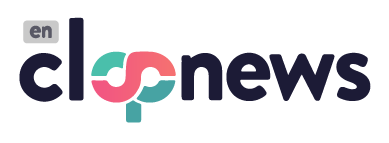Are you considering a secured loan but unsure if it’s the right financial step for you? Secured loans can be a wise choice for those who need access to larger sums of money or want to secure a loan with more favorable terms. In this article, we’ll break down everything you need to know about secured loans—what they are, how they work, and their potential benefits.
Secured loans are backed by collateral, meaning you pledge an asset, like your home or car, to guarantee the loan. This type of loan often comes with lower interest rates compared to unsecured loans, making it an attractive option for borrowers who have the necessary collateral. However, it’s crucial to understand the risks involved, as failing to repay the loan could result in the loss of your asset.
In the following sections, we’ll explore the different types of secured loans available and guide you through the process of determining if this is the right choice for your financial situation. By the end, you’ll be well-equipped to make an informed decision about pursuing a secured loan and understand how it can fit into your overall financial strategy.
Understanding Secured Loans
Secured loans require the borrower to offer collateral, giving lenders added assurance about the loan’s repayment. This security measure lowers the lender’s risk and often results in lower interest rates for the borrower. Understanding the mechanics of a secured loan is essential before committing to such financial commitments.
The collateral offered can be any valuable asset owned by the borrower. Common examples include real estate, vehicles, or savings accounts. In the event of default, the lender has the legal right to seize the collateral, which highlights the importance of evaluating one’s ability to repay the loan.
With a secured loan, borrowers might have access to larger loan amounts than they would with unsecured loans. This is particularly beneficial for those looking to finance substantial expenses, such as home renovations or medical bills. Nevertheless, careful consideration of risk is imperative.
Types of Secured Loans
Various types of secured loans are available, tailored to meet different financial needs. One of the most common forms is a mortgage, where the property itself serves as collateral. Mortgages typically have long repayment terms, often extending up to 30 years, allowing borrowers to spread out payments.
Another prevalent type is the auto loan. In this case, the vehicle being purchased serves as collateral. Auto loans usually have shorter terms compared to mortgages, typically between three to seven years, and offer competitive interest rates for qualifying buyers.
Home equity loans and lines of credit are also popular secured loan options. These allow homeowners to borrow against the equity in their homes. This can provide access to significant funds, beneficial for major expenses or managing debt, although it increases the risk of foreclosure if not managed properly.
Benefits of Secured Loans
One of the primary benefits of secured loans is their favorable interest rates. Because the loan is backed by collateral, lenders can offer lower rates compared to unsecured loans. This results in lower monthly payments and less interest paid over the life of the loan.
Additionally, secured loans often allow for access to larger sums of money. This can be advantageous for borrowers looking to make significant purchases or consolidate higher-interest debt. The availability of substantial funds makes these loans attractive and practical for extensive financial plans.
Lastly, secured loans can be a good option for individuals with less-than-perfect credit. The presence of collateral can bolster a borrower’s application, potentially offsetting a lower credit score. This offers a viable pathway for individuals looking to improve their credit over time.
Risks Involved
While secured loans offer many benefits, they also come with inherent risks. The most significant danger is the potential loss of the asset used as collateral if the borrower fails to make payments. This can lead to severe financial hardship and loss of property.
Furthermore, even though interest rates for secured loans are lower, they are often variable. This means that the rates can increase over time, potentially making monthly payments more challenging. Borrowers should prepare for the possibility of fluctuating costs.
It’s crucial to fully assess one’s financial capability before opting for a secured loan. Understanding the implications of default and the impact on personal assets is vital. Borrowers should ensure that their income and budget can comfortably cover the loan’s payments.
💡 How to Choose the Right Type of Loan for You
Is a Secured Loan Right for You?
Deciding whether a secured loan is appropriate requires evaluating one’s financial situation and long-term goals. Individuals planning large purchases or consolidating debt can benefit from the stability and potential cost savings of secured loans.
However, those with uncertain financial situations or who cannot risk their assets should reconsider this option. Weighing the pros and cons, alongside consulting a financial advisor, can provide clarity and guidance in making an informed decision.
Ultimately, a secured loan can be an effective tool for strategic financial management if utilized responsibly. By understanding all aspects involved, borrowers can make choices that align with their financial objectives and enhance their financial health.
Conclusion
In conclusion, secured loans offer a viable financial solution for those needing access to substantial funds with favorable terms. While they present benefits such as lower interest rates and higher borrowing limits, the risks, particularly concerning collateral, are significant.
Choosing a secured loan involves careful consideration of personal finances, future plans, and comfort with pledging assets. By thoroughly evaluating these factors, borrowers can determine their suitability and how such a loan fits into their financial strategy.
Informed decision-making is key. Understanding the nuances of secured loans enables borrowers to harness their benefits while mitigating risks, thereby achieving financial goals with greater confidence.



